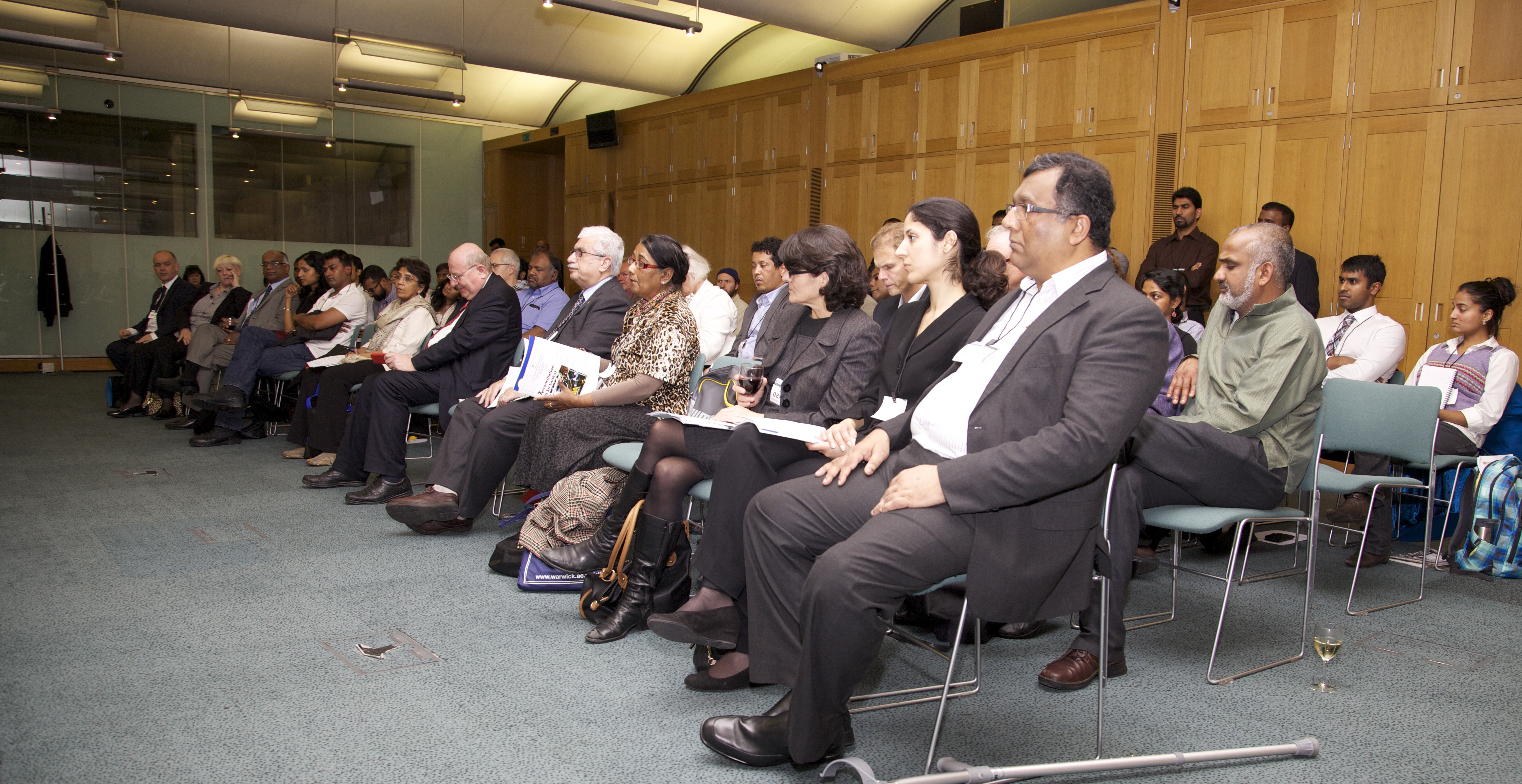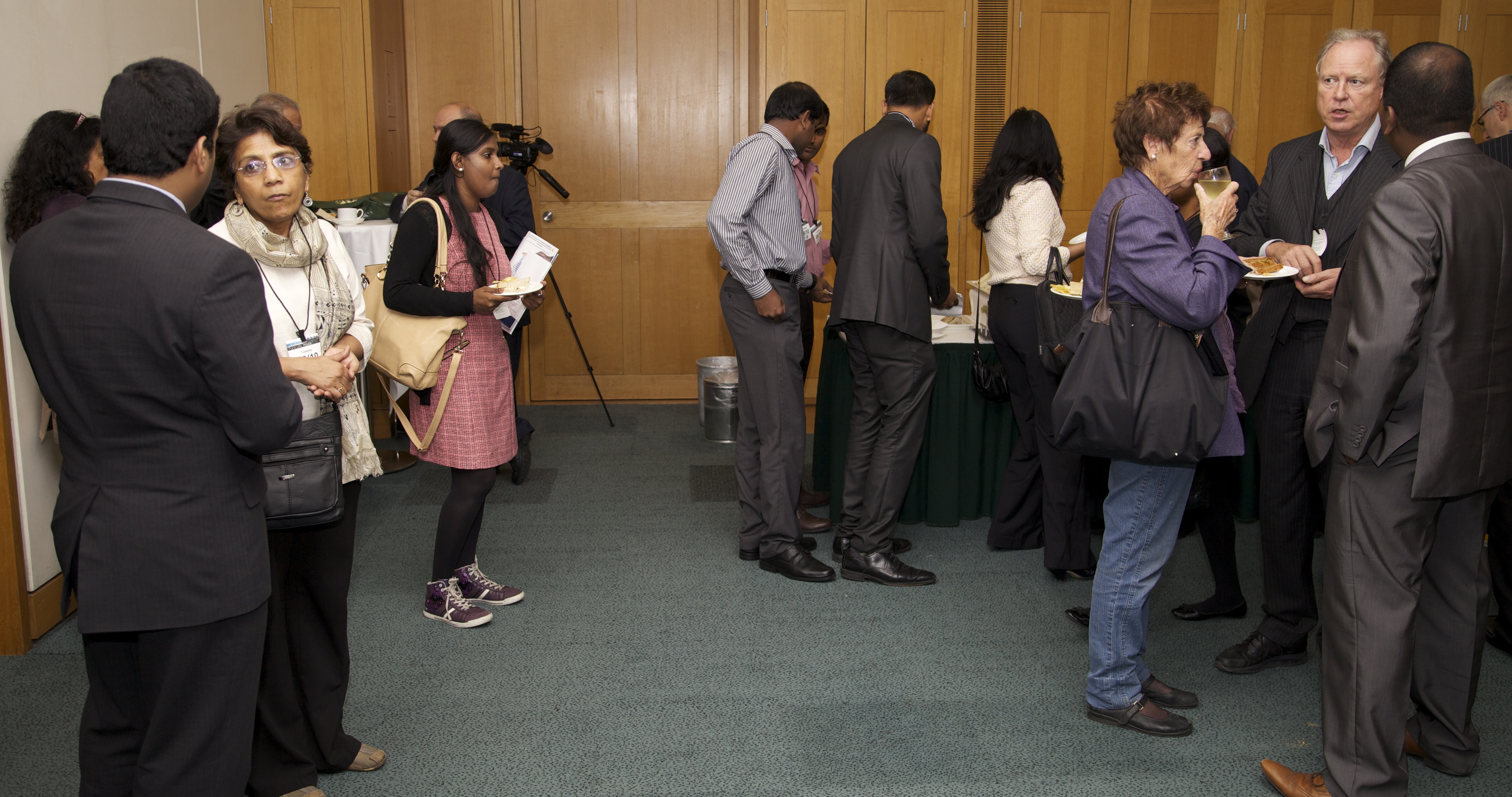The British Tamil Forum, in collaboration with the All Party Parliamentary Group for Tamils, held a forum on genocide at Porticullis House today.
Following opening remarks from conservative MP, Lee Scott, the event proceeded with presentations from 4 panel members ending with a short question and answer session, which was chaired by Redbridge Councillor Alan Weinberg.
 |
The first panelist, Rajganna from Tamils Against Genocide (TAG) drew upon events that pointed towards genocide and highlighted the intent behind the government’s shelling of the no fire zone, prevalent altering of demographics in the North-East and examples of hate speech by several members of the government.
Dr Andrew Higgingbottom , a lecturer at the University of Kingston, next took the floor and argued that Navi Pilllay’s findings of land grab and militarisation illustrated that structural genocide was occurring in the North-East.
Higgingbottom stressed that the Sri Lankan government was ejecting Tamils from their traditional areas and resettling Sinhalese from the South, whilst also using coercive population control techniques. Condeming the reluctance of people to use the term of genocide when talking about the plight of those in the North-East, Higgingbottom stressed that the it was important to remember that the genocide of the Tamil people occurred before the LTTE was even formed and highlighted that the Tamil call for self-determination predated the LTTE. Higgingbottom further argued that many nations knew of the atrocities that were taking place in 2009 but remained silent, and highlighted the need for activists to pressure the British government to withdraw from the Commonwealth Heads of Government Meeting.
Shivani Jegarajah, a leading barrister from the Renaissance Chambers, took the floor by reiterating that David Cameron’s attendance of CHOGM would mean that genocide was being condoned by the British government. Reiterating that the genocide was not only confined to the killings in the No Fire Zone, Jegarajah took the room through the horrific experiences of rape, torture and murder in the asylum cases she had dealt with. Jegarajah also highlighted attacks on freedom of expression in the North-East, reminding people that the current event and discussions would be impossible to hold in Sri Lanka, consolidating the need for the Tamil diaspora to remain vocal. She further outlined that the oppressive grip of Sri Lanka was so strong that solicitors in the UK were unwilling to take up asylum cases, in fear of reprisals against their family members in the North-East.
The floor was then given to an Associate Fellow of the Chatham House Asia Programme, Dr Chris Smith, who recalled on the unbelievable suffering he saw in Vanni during his visit in 2009. Smith went on to highlight the effectiveness of international pressure in forcing the government to dismantle the unacceptable displacement camps whilst reiterating that the people had not been adequately resettled. Noting the considerable post-war economic development in the North-East, Smith made clear that the progress was not to be attributed to the Sri Lankan government, but instead to the resilience of the Tamil people. Smith described the restrictions placed on NGO work by the government and the High levels of militarisation in the North-East that lead to military involvement in every day aspects of people’s lives. Smith condemned the Commonwealth’s treatment of Sri Lanka, reminding the room the Rajapaksa would chair discussions on democracy and human rights until the next Heads of Government meeting.
The panel presentations were followed by various questions from the audience and general discussion between the audience and panellists.
Contributing to discussion around the British government’s attendance of CHOGM, Dr Higgingbottom, reiterated that Cameron must pay a huge political price if he attends.
Alan Weinberg, highlighted parallels between Sri Lanka’s one nation rhetoric and Hitler’s racist campaigns.
A question was posed to the panel that asked whether the use of the term minority when describing Tamils in Sri Lanka, was an inhibiting perception that, in-fact, undermined the struggle against genocide. Responding to the question, Dr Smith conceded that this could be the case and that the correct terminology in such complicated situations was very important.
Describing her experience of Sri Lankan officials, Margaret Owen, the director fo Widows for Peace through Democracy, linked the Sri Lankan rhetoric to the Weirnbergs comments, highlighting that officials worryingly responded to her demands for reconciliation with the Tamils, by stating, “ There is no such thing as being Tamil, we are all Sri Lankan.”
Several other representatives of movements against genocide also showed their support for the Tamil cause, urging the importance of highlighting the plight of people facing genocide.
The discussions ended with the panel reiterating the need to change the narrative of the situation in the North-East and acknowledge the genocide that the Tamil people were subjected to.
 |
